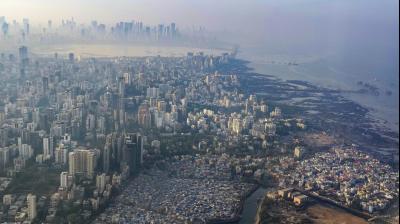Contractors’ hand behind decision
Sources have revealed that pressure from contractors who are interested in constructing the Sewri-Nhava Sheva Mumbai Trans-Harbour Link (MTHL) is the reason why the Mumbai Metropolitan Region Developm
Sources have revealed that pressure from contractors who are interested in constructing the Sewri-Nhava Sheva Mumbai Trans-Harbour Link (MTHL) is the reason why the Mumbai Metropolitan Region Development Authority (MMRDA) has dropped the plan to create a metro corridor on or parallel to the proposed 22-km-long bridge.
The contractors, the sources said, were of the view that if a public transport system were to exist, construction would become financially unviable, as every individual would prefer the metro to private vehicles, and this would have a negative impact on income from the toll collection. It would also delay recovery of the construction cost of the project.
“Considering that this would be the state government’s fourth attempt at tendering the three-decade-old project, the contractors’ opinions have assumed great importance. Also, chief minister Devendra Fadnavis is very keen on maintaining connectivity between Mumbai and satellite city Navi Mumbai, with the proposed international airport coming up there in 2019,” sources said.
As mentioned earlier, the state government has made three attempts to tender the construction of the MTHL on the public-private-partnership model and as well as the cash-contract model.
“It is very sad that the convenience of contractors is taking precedent, when it should be the convenience of the people that comes first. Both should be there and the metro is a must for people who cannot afford private vehicles,” said transport expert A.V. Shenoy.
The delay in the completion of the project will result in motorists having to pay an increased amount as tolls compared to what was decided in 2012. The proposed toll amount ranges from Rs 175-790 for various vehicles that will use the route.
The total cost of the project is Rs 17,500 crore and the Japanese International Cooperation Agency will fund around 85 per cent of the amount.

















